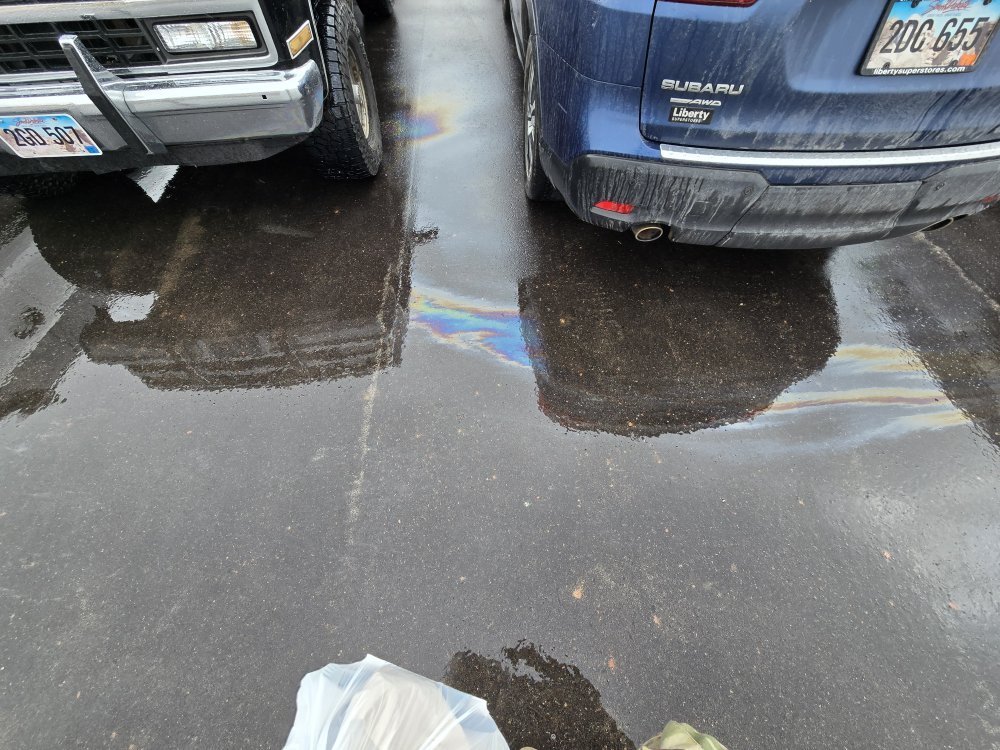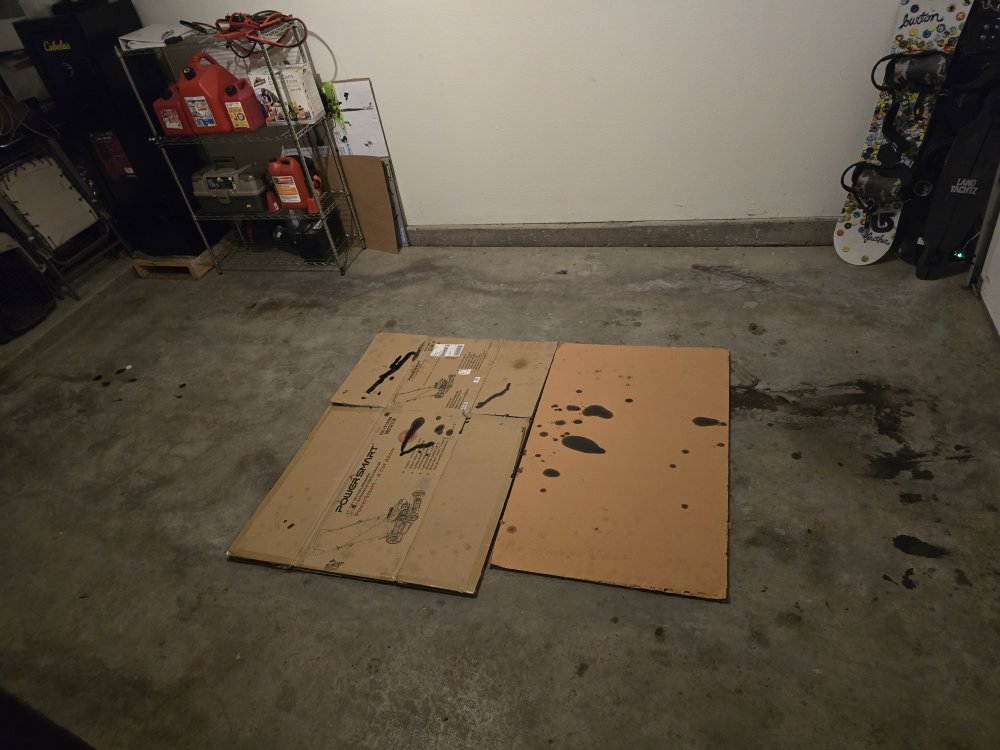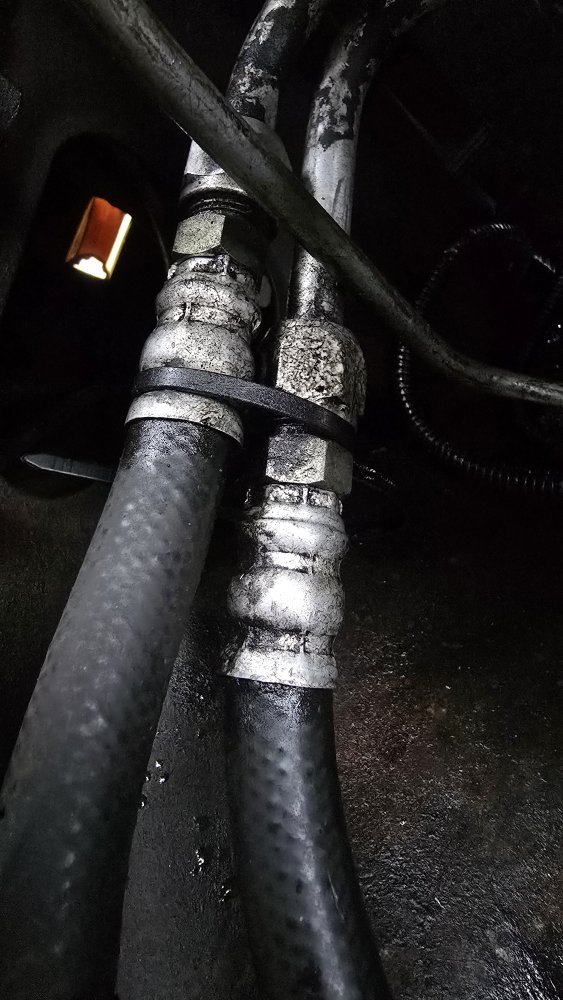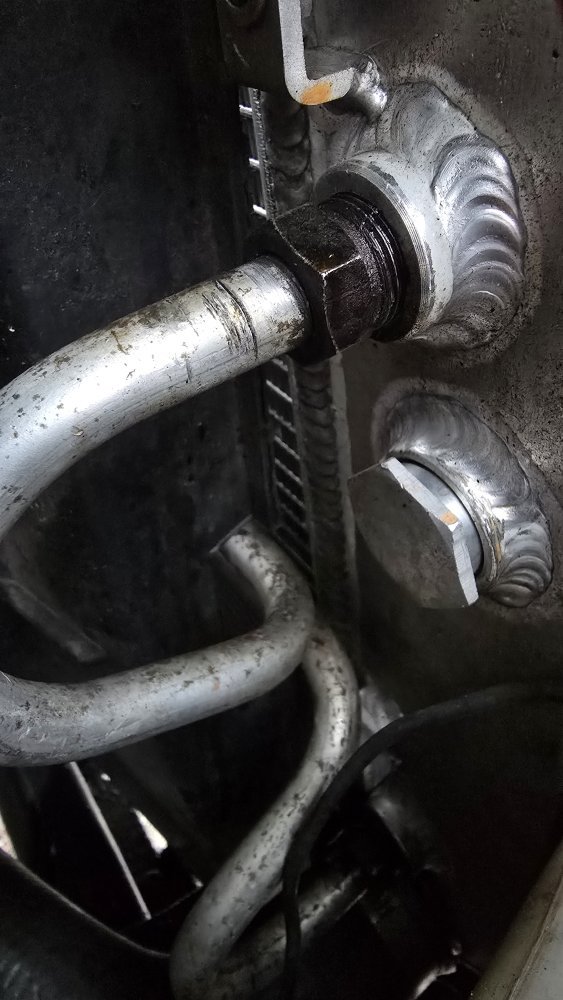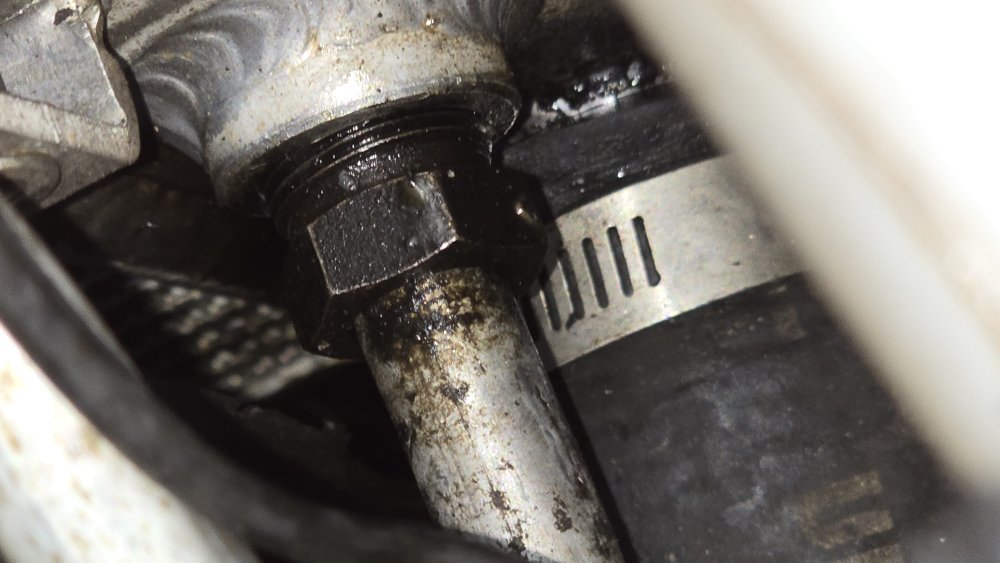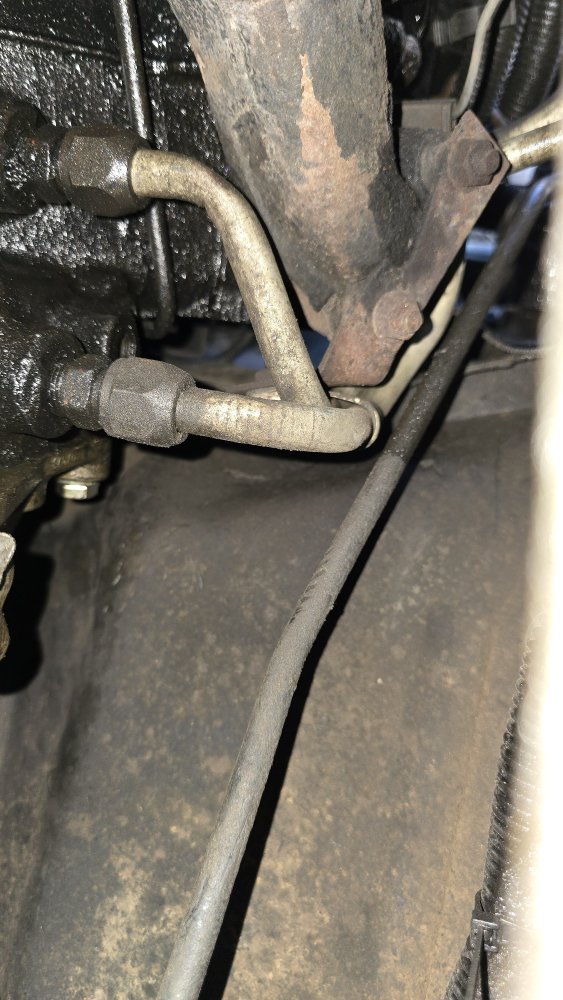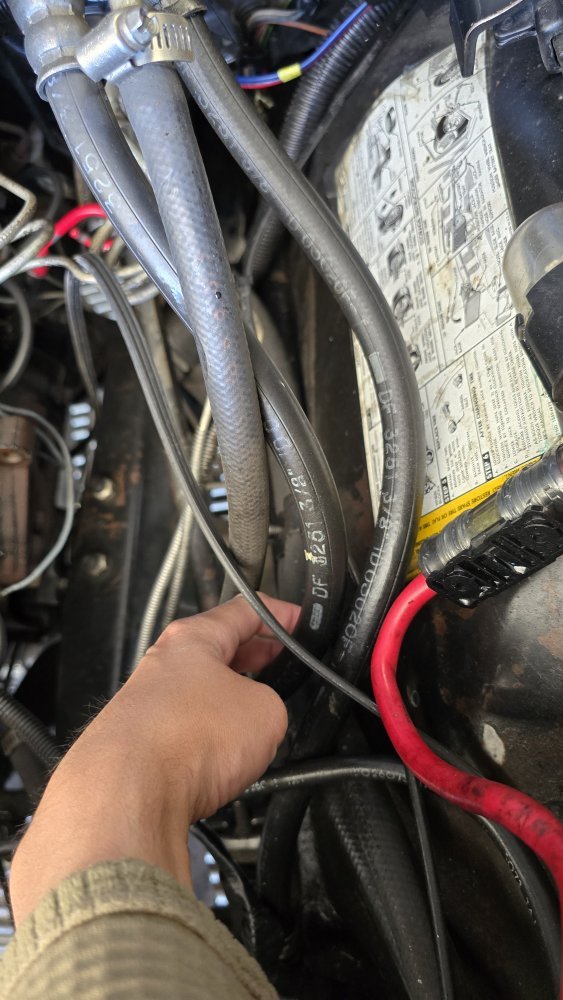Will L.
Well-Known Member
Yup. Thats looks like them to me.
You can have them re-use the metal part of the lines or you can remove those flare adapters and just use regular fittings and route the houses as you see fit trying to keep the hose away from the hot exhaust as much as possible and in a way that follows the frame up to the front to the oil cooler.
Those older style are more reliable than what GM did later.
I would carefully investigate them for any signs of seeping, leaking, getting soft in any part, and chaffing, etc.
The ones Leroy sells will NOT replace theses.
This becomes the guessing game. Original high quality ones are nla. Aftermarket ones are not as good as original but originals will fail in time. Replacing pre made aftermarket ones is better than running originals until they fail is obviously not good. How much longer do these last is the gamble.
I’m in favor of industrial hydraulic hoses in place of them. Give me a few minutes and I’ll post pics of what hmmwvs/ Hummer used as the example- they used the same type of industrial hydraulic hose I am referring to.
You can have them re-use the metal part of the lines or you can remove those flare adapters and just use regular fittings and route the houses as you see fit trying to keep the hose away from the hot exhaust as much as possible and in a way that follows the frame up to the front to the oil cooler.
Those older style are more reliable than what GM did later.
I would carefully investigate them for any signs of seeping, leaking, getting soft in any part, and chaffing, etc.
The ones Leroy sells will NOT replace theses.
This becomes the guessing game. Original high quality ones are nla. Aftermarket ones are not as good as original but originals will fail in time. Replacing pre made aftermarket ones is better than running originals until they fail is obviously not good. How much longer do these last is the gamble.
I’m in favor of industrial hydraulic hoses in place of them. Give me a few minutes and I’ll post pics of what hmmwvs/ Hummer used as the example- they used the same type of industrial hydraulic hose I am referring to.



